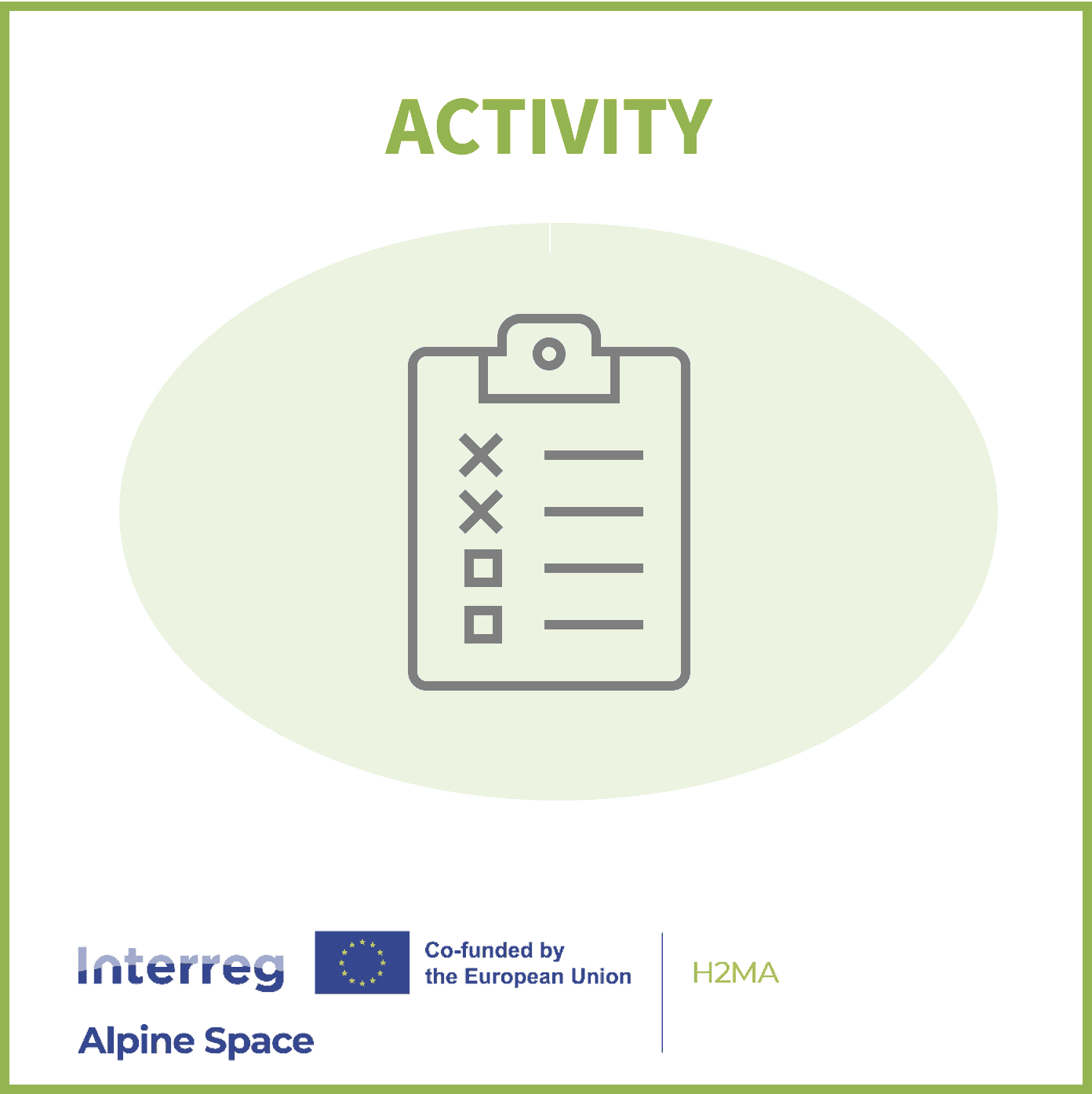Article on the “Peer-review guidelines on how to jointly develop a common transalpine green H2 route masterplan”
Introduction
The Activity 2.3, focuses on developing a common masterplan for green hydrogen routes; this involves peer-review workshops where territorial route designs and scenarios are shared and reviewed. The compatibility between the territorial plans will be then analysed, and partners will discuss and work on integrating these different plans into a common green hydrogen transalpine masterplan.
This process not only seeks to optimise regional route designs but also to ensure their compatibility across borders, thereby facilitating a seamless and efficient hydrogen network.
Challenges and Good Practices in Hydrogen Route Development
The transportation of hydrogen across long distances poses several challenges, including high costs, increased carbon intensity, and supply reliability issues.
Given these challenges, the development of long-distance hydrogen routes necessitates a multidisciplinary approach that encompasses strategic planning, infrastructure development, technical integration, environmental considerations, economic viability, regulatory compliance, stakeholder engagement, risk management, and the utilization of advanced technological tools like Geographic Information Systems (GIS). Additionally, for cross-border routes involving multiple EU countries and regions, effective international coordination and harmonization of standards are crucial.
Case Studies and Lessons Learned
The H2MA project also bases on experiences from real case studies, such as the European Hydrogen Backbone (EHB) and the Hydrogen Infrastructure for European Transport (H2ME). These case studies highlight the importance of leveraging existing infrastructure, fostering public-private partnerships, and ensuring consistent policy frameworks. In addition, the North Sea Wind Power Hub (NSWPH) case exemplifies the potential of regional cooperation in developing a sustainable hydrogen network.
Peer Review Workshop
The overall objective of the peer review workshop is to support the development of a transalpine green hydrogen masterplan, which will define transnational green hydrogen routes across the Alpine Road network, and point out optimal locations for green hydrogen infrastructure. In particular, the workshop will serve as a platform that will allow partners to examine, discuss and optimise the green hydrogen mobility plans developed in Activity 2.2.
In this context, the peer-review framework will provide guidelines, criteria, and recommendations to support H2MA partners in assessing the green hydrogen routes developed in the context of Activity 2.2, highlighting compatibility gaps between the routes, and identifying areas of improvement in order to merge the routes into a common transalpine Masterplan.
The peer review and assessment of the routes is an essential step for their merging into a functional, economically viable transalpine green hydrogen masterplan since it will allow partners to assess already prepared routes, avoid potential inconsistencies and inefficiencies and ensure that the Masterplan meets the foreseen quality standards and criteria.
—
The H2MA project’s efforts to develop a transalpine green hydrogen masterplan represent a significant step towards decarbonizing transportation in the Alpine region. By fostering international cooperation and integrating advanced technologies, the project will build a robust and sustainable hydrogen infrastructure, setting a precedent for future green energy initiatives.



